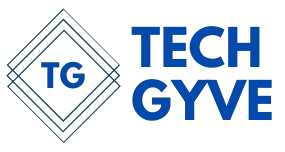The final minutes of a job interview might seem like a mere formality, but they are, in fact, a golden opportunity. Often overlooked, this part of the interview is not just a chance to demonstrate your interest but a strategic moment that can significantly influence the hiring decision.
Recent studies highlight that the questions you ask at the end of the interview can leave a lasting impression on decision-makers, potentially overshadowing minor slip-ups earlier in the conversation. But how do you make these last moments count? Let’s dive into the art of asking the right questions and avoid common pitfalls.

1. Uncovering the Company Culture and Role Expectations
Instead of sticking to generic questions, tailor your inquiries to gain insights into the company’s environment and your potential role. For instance, ask about the specific expectations for the role, how performance reviews are conducted, or what the team dynamics are like. Questions that reveal the company’s approach to employee development and error management can provide a clearer picture of what to expect.
2. Go Beyond the Script
Avoid the cookie-cutter questions that often lead to predictable answers. Instead, frame your questions to align with the position and the company’s current state. For example, inquire about how the company has evolved recently or what major challenges it faces. This not only shows that you’ve done your homework but also signals your genuine interest in how you can contribute to the company’s future.
3. Tread Carefully Around Sensitive Topics
While questions about remote work, work-life balance, and sabbaticals are relevant, they should be approached with caution if they haven’t been covered. Additionally, direct queries about salary and compensation should generally be reserved for later stages of the hiring process. Instead, focus on understanding the company’s onboarding process and the opportunities for growth within the organization.
4. Evaluate Company Fit and Communication Style
The final segment of the interview is also your chance to assess whether you’ll mesh well with the company’s culture and management style. Ask about your future manager’s career path and what they enjoy about their role. This helps you gauge the alignment between your career goals and the company’s environment.
5. Showcase Your Fit and Flexibility
Use this time to subtly highlight your strengths and experiences that align with the role. However, be careful not to come across as overly self-promotional. The goal is to reinforce your suitability for the position while maintaining professionalism and respect for the interview process.
6. Prepare and Adapt
Plan your questions in advance but remain flexible. The flow of the interview might reveal new areas to explore or indicate which questions are no longer relevant. Adapt your approach based on the discussion to make the most of this crucial part of the interview.
7. Manage Your Time Wisely
Ensure that your questions are concise and relevant, respecting the time constraints of the interview. Demonstrating that you can manage this final segment efficiently reflects positively on your organizational skills and professionalism.
In today’s competitive job market, making the most of the last few minutes of your interview can set you apart from other candidates. By asking thoughtful and strategic questions, you not only gather valuable information but also leave a strong, positive impression on your potential future employer.
